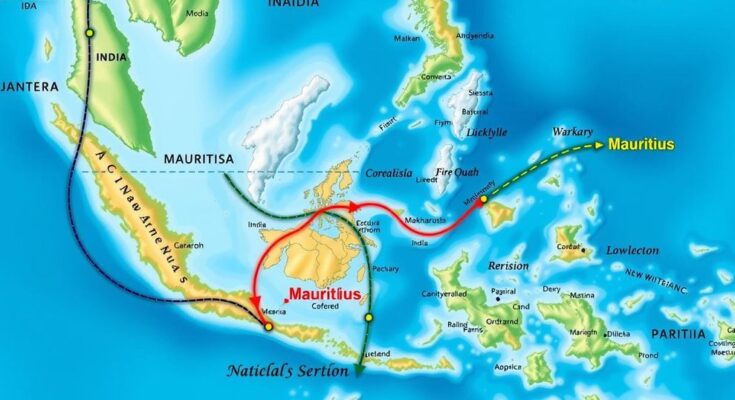Mauritius faces urgent issues such as water supply, overshadowing infrastructure projects like a new parliament building. The enhanced partnership with India amidst rising great power rivalries signals India’s growing interests in the region. Mauritius’s historical ties with France and China’s significant market presence complicate the geopolitical landscape. The U.S. embassy’s expansion indicates increased American involvement, highlighting the need for India to remain adaptable to maintain its influence in Mauritius.
The pressing matter for Mauritius extends beyond its parliamentary infrastructure, as highlighted by Kwang Poon, a geo-strategist based in Port Louis. He emphasizes the urgency of addressing essential services such as water supply, advocating for support from India to develop reservoirs and treatment plants. The notion of a new parliament building pales in comparison to these more pressing needs.
Poon interprets the recent strategic partnership formed during Prime Minister Narendra Modi’s visit as India’s response to escalating great power rivalries in the Indian Ocean region. Mauritius has historically been a site of contention among various global powers, including the United States, France, China, and Japan.
The anticipated visit from President Emmanuel Macron of France is expected to reinforce the historical ties and cultural connections dating back to when Mauritius was a French colony. French remains prevalent in the nation, further solidifying France’s presence through tourism and economic ties.
China’s influence is significant within Mauritius, with a plethora of Chinese goods available in local markets. Interestingly, Mauritius has opted against joining China’s Belt and Road Initiative, a decision influenced by India’s reservations regarding the program. Poon reflects on the potential shifts in trade dynamics instigated by a thaw in India-China relations, as well as the impacts of tariffs instituted by former President Donald Trump.
Poon identifies Mauritius’s geographical advantages, positioning it as a crucial trans-shipment hub connecting Africa with China, surpassing competitive ports like Mombasa and those in Tanzania. The aspiration to rival Singapore’s efficiency in handling shipping volumes underscores its strategic importance.
The growing U.S. engagement with Mauritius is exemplified by the construction of a significant embassy complex in Port Louis. This development is intricately linked to the enduring U.S. military presence at Diego Garcia, a base maintained since the 1970s. Poon highlights the lack of an American diaspora on the island in contrast to its substantial Indian community, suggesting that India must adapt to preserve its influence in Mauritius’s future.
In conclusion, the strategic dynamics between India and Mauritius are evolving amidst competing interests from other global powers, notably the United States and China. Mauritius’s focus on urgent infrastructure needs, particularly water supply, reflects the necessity for external support. As Mauritius seeks to enhance its role as a trans-shipment hub, the ongoing geopolitical developments will require that India remain attuned to Mauritius’s interests to sustain its influence in the region.
Original Source: stratnewsglobal.com




